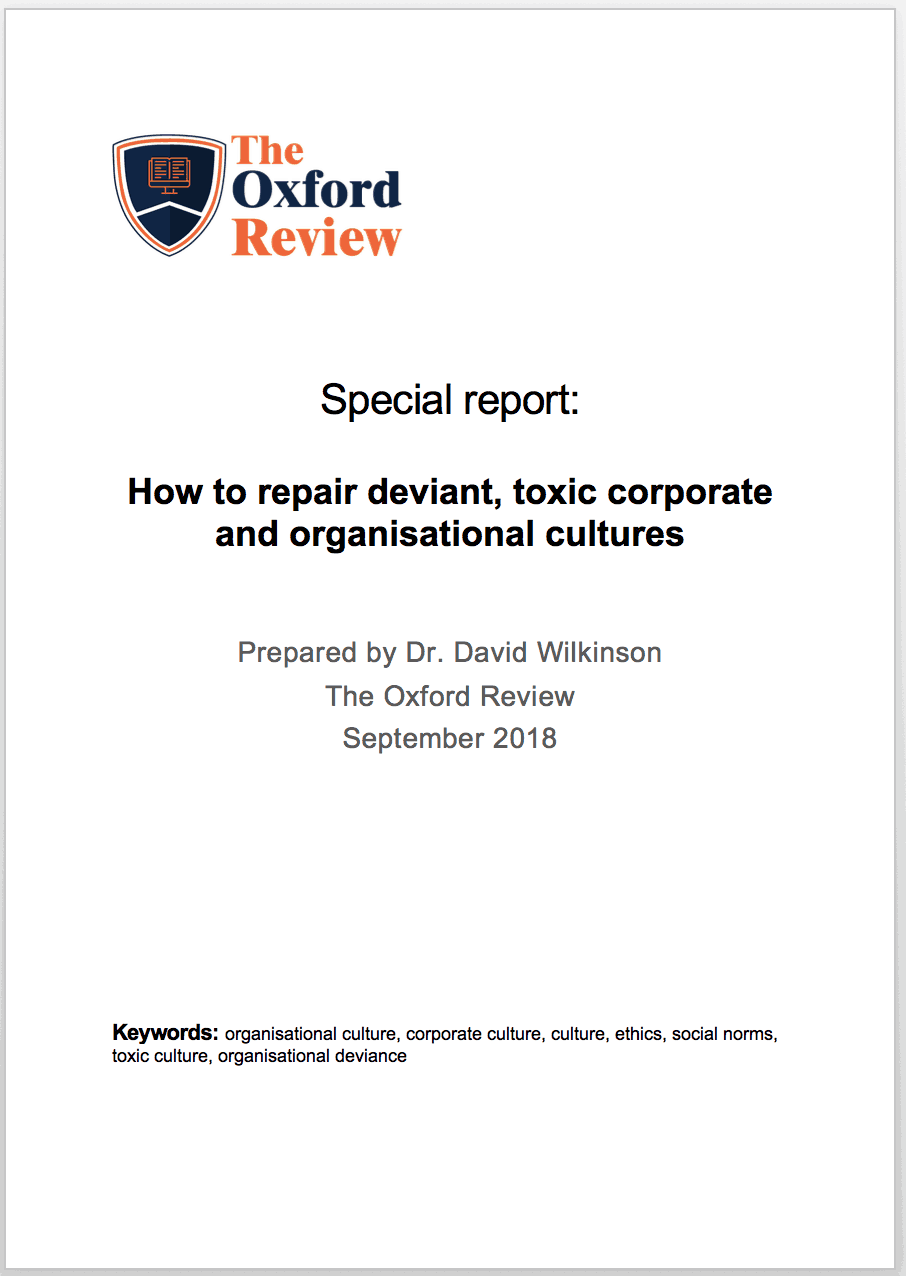How to repair deviant, toxic corporate and organisational cultures

The Oxford Review has just published it’s latest Special Report – How to repair deviant, toxic corporate and organisational cultures.
Special reports are extended research briefings. In this report:
- How to repair deviant, toxic corporate and organisational cultures
- External deterrence
- Corporate culture overview
- Toxic corporate cultures
- Automated Situational Norms
- Thin end of the wedge – how cultures become toxic and deviant
- The role of punishment
- Discrepancies
- The three primary factors that foster unethical climates
- Four primary lessons about toxic cultures
- The stages for dealing with deviant toxic cultures
- References
This report is immensely useful for anyone involved in organisational development and transformation and interested in organisational culture. In particular this extended research briefing can act as an evidence-based framework for repairing and dealing with deviant and toxic corporate and organisational cultures.
You can buy the report here: https://oxford-review.com/downloads/how-to-repair-deviant-toxic-corporate-and-organisational-cultures-special-report/
Members just log in to download – How to repair deviant, toxic corporate and organisational cultures
Not a member? – Apply to join now and get:
- Weekly research briefings sent direct to you every week
- A copy of the Oxford Review containing between twelve and sixteen additional research briefings every month
- Research Infographics
- Video research briefings.
- The occasional special reports / short literature reviews on topics that appear to be getting a lot of research attention or if there has been a recent shift in the thinking or theory
- The ability to request a watch list for new research in keyword areas (as long as it is within the realms of:
- Leadership
- Management
- Human resources (not legal aspects)
- Organisational development
- Organisational change
- Organisational learning
- Learning and development,
- Coaching
- Work Psychology
- Decision making
- Request specific research / brief literature reviews
- Access to the entire archive of previous research briefings, copies of the Oxford Review, infographics, video research briefings and special reports.
- Members only podcasts – research briefings in audio – coming soon
Prices start from only £28.50/$37.70/€35 a month to be the most up-to-date person in the room.
Be impressively well informed

Get the very latest research intelligence briefings, video research briefings, infographics and more sent direct to you as they are published
Be the most impressively well-informed and up-to-date person around...
